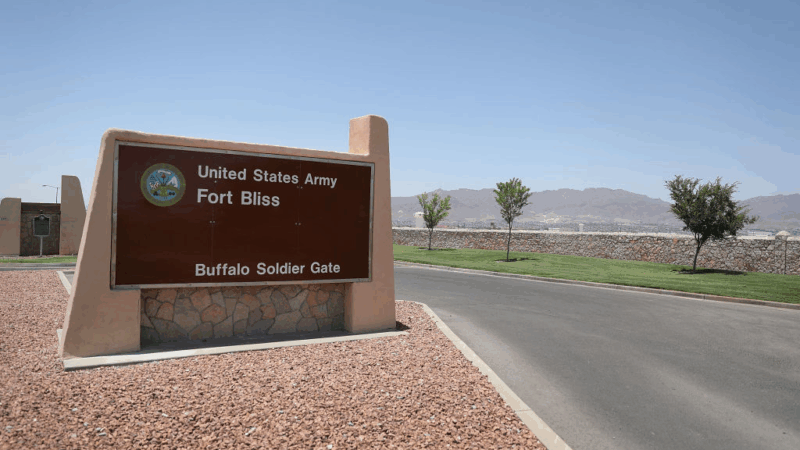Why did Israel resume the war in Gaza?
TEL AVIV, Israel — Mediators were holding ceasefire talks with Hamas in the wee hours of the morning Tuesday when the surprise Israeli strikes began, according to a senior Hamas official.
Deception was the point, an Israeli official said.
At 2:10 a.m., Israel launched about ten minutes of strikes from naval ships and dozens of warplanes after weeks of preparations for an offensive that was kept inside closed circles in the Israeli military. Both officials spoke on condition of anonymity to discuss what was happening behind the scenes.
What followed was one of the deadliest days of the Gaza war, with more than 400 people killed in nighttime airstrikes on homes, according to Gaza health officials, including five Hamas officials and women and children. Israel said it was targeting Hamas mid-level leaders, and officials in Gaza who tally the death tolls do not distinguish between Hamas-affiliated combatants and civilians.
Israelis were surprised by the return to war, too. More than half of the living Israeli hostages freed under the latest ceasefire deal — 14 out of 25 living Israelis freed in the last several months — said the move endangered the lives of the 24 other hostages still held in Gaza and believed to be alive.
Hamas has not yet fired back at Israel, nor has it budged from its position.
Why did Israel break the ceasefire?
Israel broke the ceasefire agreement reached by the Biden administration. It wants new terms under Trump
Leading Israeli defense analysts and former officials have made an admission: Israel violated the ceasefire deal that began on Jan. 19, the last full day of the Biden administration.
“There’s no other way to explain it: Israel knowingly violated the cease-fire agreement with Hamas – with American approval – because it didn’t want to fully meet the terms it had committed to two months ago,” wrote Amos Harel, a defense affairs columnist for the Israel’s left-leaning Haaretz newspaper.
According to the Israel-Hamas agreement, on the 16th day of the ceasefire, the sides were supposed to enter talks regarding the permanent end of the war. Israel refused to hold those talks, as agreed, so long as Hamas remained in control in Gaza.
The specific terms of the deal were never officially published. And though the deal was clinched with involvement from the incoming Trump administration, it was sealed under the auspices of the Biden administration in its waning days. Israel saw itself as having leeway to try to extract new terms under President Trump.
Trump’s Mideast envoy Steve Witkoff presented a proposal last week for new ceasefire terms — releasing more hostages before beginning end-of-war talks — and Israel says it is returning to war to pressure Hamas to agree to those terms.
Hamas was regrouping amid the lack of war without giving up additional hostages
On Mar. 1, the ceasefire entered a twilight zone.
Phase one of the deal — exchanging a group of Israeli hostages for Palestinian prisoners — was over. But phase two — a full troop withdrawal from the Gaza border with Egypt, and moves toward a permanent end of the war — had not begun.

Proposals and counterproposals were made. The U.S. and Hamas held secret talks which then stopped when they were leaked.
All the while, Hamas continued to recover. Israel had allowed in a surge of aid supplies. Hamas government leaders in Gaza began emerging from tunnels and hideouts, deploying officials and displaying their control of the territory.
In a Facebook post that was subsequently removed after criticism from Gaza residents, the Hamas-run Gaza City municipality said it was seeking to collect taxes among Gaza residents living amid the rubble of the previous 15 months of war.
Hamas was trying to retrofit unexploded Israeli ordinance from the war for its own weapons stockpiles, according to Tamir Heyman, the head of Israel’s leading national security think tank, the Israeli Institute for National Security Studies.
“Hamas haven’t read the picture. They thought that they have a huge leverage of the hostages in their hand. And they thought they would get a ceasefire, and not paying anything,” said former Israeli military intelligence chief Amos Yadlin in a briefing to reporters. “This was the target of the attack…to tell Hamas, you are going to pay (a) high price for not accepting Witkoff proposals.”
Israel began a supplies blockade on Gaza this month to pressure Hamas to accept its terms. Hamas engaged with mediators but did not budge from its core demand to adhere to the original deal, remove Israeli troops from the Gaza-Egypt border and begin talks on the end of the war.
Egypt is presenting a new proposal to return to a ceasefire, according to an Egyptian official who was briefed on the offer and not allowed to discuss it publicly but spoke to NPR on condition of anonymity: that Hamas would release around five sick and wounded Israeli hostages and some bodies of dead hostages, in exchange for a ceasefire, the entry of aid and beginning the second phase of the ceasefire deal.
It is virtually the same proposal that had been on the table before the return to war, except for the demand to remove Israeli troops from the border area.
A return to war helps Netanyahu in his battle to stay in power
Netanyahu has a deadline: his government must pass a national budget in two weeks, or face the prospect of his government collapsing, triggering new elections.
Returning to war paved the way for Netanyahu to bring his far-right ally Itamar Ben Gvir back inside the coalition and beef up his governing majority. Ben Gvir had quit because of the January ceasefire with Hamas, and returned Tuesday with the resumption of the war.

The new offensive in Gaza also allowed Netanyahu to distract from an unprecedented move: his announcement this week that he wishes to fire his domestic security chief from the Shin Bet agency, a move that sparked street protests, with more underway on Wednesday.
Netanyahu’s move to fire him is part of a campaign to blame Israel’s security services for failing to thwart the Hamas attack Oct. 7, 2023, and deflect from accusations that Netanyahu himself shoulders responsibility. It comes on the heels of a Shin Bet investigation into Netanyahu’s aides over allegations they secretly provided consulting services to Qatar during the war.
“Netanyahu’s true objective appears increasingly clear: a gradual slide toward an authoritarian-style regime, whose survival he will try to secure through perpetual war on multiple fronts,” wrote Harel.
It is unclear if hostage families’ protests against the return to war will make any difference.
“The gates of hell have opened? For me the gates of hell have opened today,” Ruhama Buhbut told Israeli Channel 12. Ruhbut’s son, Elkana, is still held hostage in Gaza.
The strikes could last at least another two weeks until Israel passes its national budget, giving Netanyahu a stronger position in power and more flexibility to resume a ceasefire, analysts say.
The return to war in Gaza has dragged in the Houthis and could portend an eventual attack on Iran
The renewal of war in Gaza, coupled with conflict involving the Houthis, could lead to further escalation including Iran.
Iranian-backed Houthis in Yemen disrupted international shipping routes and fired missiles at Israel throughout the first 15 months of the Gaza war. After Israel resumed the war in Gaza Tuesday, the Israeli military says it intercepted a ballistic missile fired from Yemen toward Israel.
The U.S. struck Houthi targets in Yemen last weekend, and U.S. fighter jets thwarted a Houthi retaliation on a U.S. warship. President Trump warned Iran, a backer of the Houthis, of “dire consequences” if Houthi attacks do not stop.
“The possibility of an Israeli or American attack on Iran is going up due to this declaration,” Yadlin said.
Israel has made no secret of its interest in lobbying President Trump to support a strike against Iran’s nuclear program.
Abu Bakr Bashir in London, Yanal Jabarin in Jerusalem and Itay Stern in Tel Aviv contributed to this story.
Israeli fire strikes journalists and children in Gaza
Israeli forces on Wednesday killed at least 11 Palestinians in Gaza, including two boys, three journalists and a woman, hospitals said, on one of the enclave 's deadliest days since the ceasefire took effect.
Autopsy finds Cuban immigrant in ICE custody died of homicide due to asphyxia
A Cuban migrant held in solitary confinement at an immigration detention facility in Texas died after guards held him down, according to an autopsy report released Wednesday that ruled the death a homicide.
Confused by all the notices issued for intense winter weather? Here’s your guide
The National Weather Service issues a litany of notices before and during inclement weather events. They can be important signals on how to respond.
A massive winter storm will hit large parts of the U.S. through the weekend
A large storm system is expected to hit this weekend, with snow and ice from Texas to the Carolinas and up the Eastern seaboard. The winter system could bring more than a foot of snow.
House Oversight panel votes to hold Bill and Hillary Clinton in contempt of Congress
Republicans on the committee have been seeking to question the Clintons as part of a probe into the government's handling of the Jeffrey Epstein case. The vote sends the matter to the full House.
Lindsey Halligan, Trump’s former personal attorney, exits Virginia prosecutor’s office
The move comes after a federal judge wrote in court document that the "charade of Ms. Halligan masquerading as the United States Attorney … must come to an end."







